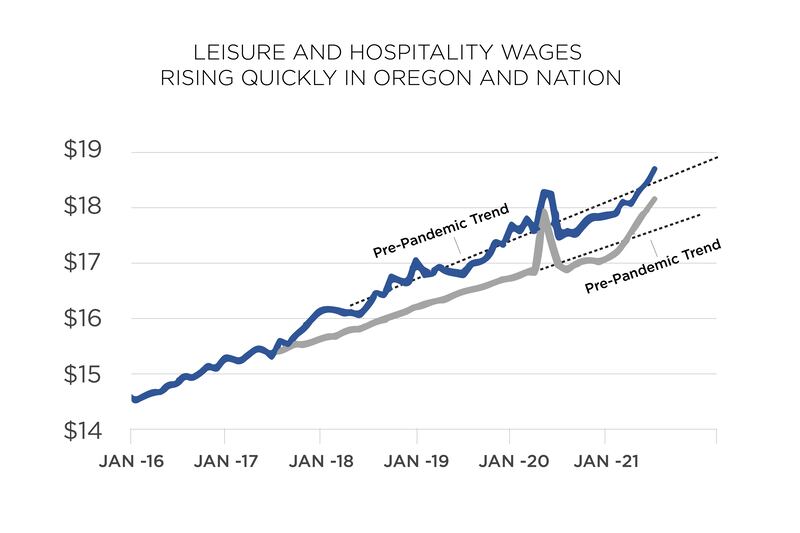As Oregon bars and restaurants resumed face-to-face customer service this spring, business owners voiced a uniform complaint: Job seekers had disappeared. Frustrated publicans blamed unemployment benefits for creating a workforce shortage (“Four Questions for Jenny Liu,” WW, May 19, 2021).
Looks like they found a solution: Pay workers more.
The average hourly wage in the Oregon leisure and hospitality industry was $18.78 in June, according to data compiled by the Oregon Office of Economic Analysis. That’s a 1% increase over pre-pandemic trends, and 3% above national trends.
“That doesn’t sound like much,” says state economist Joshua Lehner, “but it adds up, and the industry was already seeing above-average wage growth in the years leading up to the pandemic.”
That hourly figure is also significant because the tight job market is moving faster than state-mandated minimum wages. On July 1, the hourly minimum wage in the Portland metro area (the highest in the state) increased by 75 cents to $14, the first bump in a year. Meanwhile, the average hourly wage for a leisure and hospitality worker increased by $1.23 over that time.
Lehner says there are several reasons bar and resort owners are forced to hike wages. They laid off most of their staff when the pandemic started, so as Oregonians flock to happy hour and the coast, business owners are competing for the same workers.
“So what do firms do?” he asks. “Consumer demand is very strong. All of these companies are trying to staff back up at the same time. Well, you start to increase wages.”
And probably continue increasing them: Lehner’s office projects the average hourly wage will grow another 21 cents by Christmas.


